Issue 43 : 17 November 2019
Talofa Lava, Kia Orana, Malo E Leilei, Tena Koutou, Hello ...
... and welcome to the latest issue of “For The Love Of The Game”, the official e-zine of the New Zealand Amateur Sport Association Inc. We hope you enjoy reading the articles below.
If you have any feedback on this issue, ideas for future articles, or would like to contact the Editor, please click here. And, you are invited to forward the e-zine to others you know, who may be interested in reading it.
If you are interested in applying for membership of the Association, please click here.
Future of Amateur Sport “In The Balance” ...
Results of the 2019 National Sport Club Survey (NSCS), recently undertaken by the Association and Auckland University of Technology’s Sport Performance Research Institute of New Zealand (SPRINZ), reveal that many people deeply involved in amateur sport are not assured of a positive future. A lack of support and resources were identified as pressing issues.

Association Chairman, Gordon Noble-Campbell says the need for sport clubs to innovate is becoming urgent, although there are tantalising glimpses of where innovation could have the greatest positive impact for clubs. Important insights related to membership, governance, and sponsorship have also emerged. You can read the Media Release, by clicking here.
775 sport clubs representative of about 150,000 members and across all of New Zealand’s 16 regions participated in the 2019 NSCS. New Zealand’s most popular sports including bowls, cricket, football, hockey, netball and rugby were the best represented among more than 70 sports in total. Forums will take place in Wellington (18 November) and Auckland (20 November) to further discuss the survey results and implications. Read below for more details.
Teenage Sport Participation Drops For First Time In 30 Years ...
Participation in United States high school sports dropped in 2018-2019 for the first time in 30 years, according to an annual survey conducted by the National Federation of State High School Associations. The last decline in sports participation numbers occurred in 1988-1989, when (as one commentator has observed) the high-school population itself was shrinking, due to a short-term fall-off in births following the "Baby-Boom".
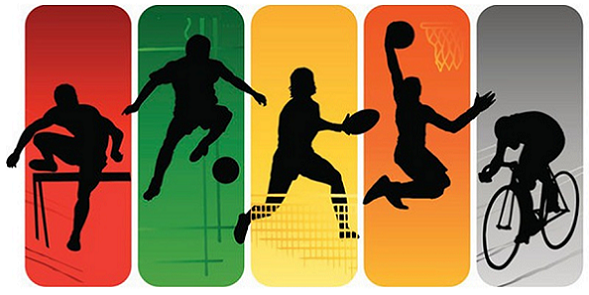
"Meritocracy", "sport specialisation" and "obsessive competition" are all cited as contributing factors, with the observation that many children from low-income families "lose the sports habit" (or never learn it), and simply stop playing altogether by the time they get to High School. It’s also been reported that children from homes earning more than US$100,000 are now twice as likely to play a team sport at least once a day compared to children from families earning less than US$25,000. You can read more here.
Pongaroa Gun Club Contemplates Closure ...
Government plans to have Shooting Ranges certified under the Resource Management Act (as part of the new Arms Legislation Bill), may force some community-based gun clubs to close. Noting that the “social interaction clubs provide are part of the glue that keeps rural communities going”, Pongaroa Gun Club President Mark Wheeler says the costs of certification (estimated to be up to $2,500), were a “lot of money for a little club”.
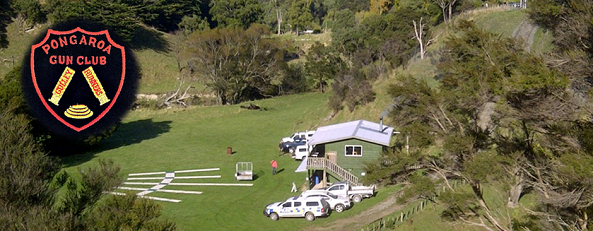
(The Pongaroa Rifle Club first received Government sanction in 1901)
The Pongaroa Rifle Club (to the east of Pahiatua) was first “approved” by the Government 118 years ago, with clubs from across the country originally part of New Zealand’s national Defence Plan. Today, the Pongaroa club has close to 60 members ranging from secondary-school age to 74 years old. Other gun clubs in the region such as the Wairarapa Pistol and Shooting Sports Club and the Wairarapa Clay Target Club have expressed similar concerns at the unintended consequences of the proposed legislation. You can read more here.
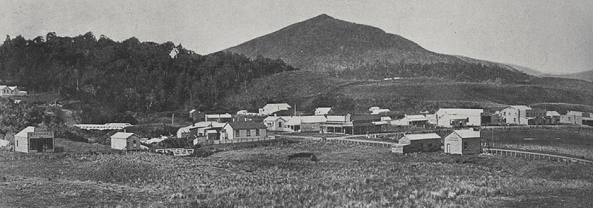
(The township of Pongaroa, 112 years ago, in 1907)
2019 National Sport Club Survey Seminars, This Week ...
The Association invites those an interest in, or association with, community-based sport to attend a 90 minute seminar where some of the key outcomes arising from the survey will be discussed. The seminars will provide ideas that will help clubs succeed in 2020 and beyond.
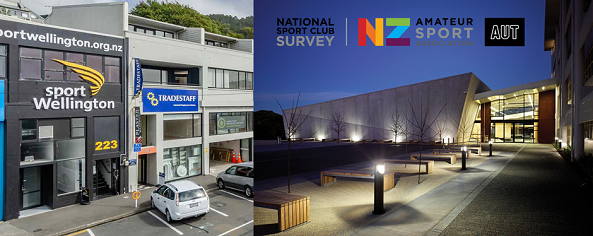
The first seminar is being held on Monday 18 November, 5.00pm - 6.30pm, at Sport Wellington, Level 1, 223 Thorndon Quay. The second seminar is on Wednesday, 20 November, 4.00pm - 5.30pm, at AUT North Campus, 90 Akoranga Dr, Northcote, Auckland. If you would like to register to attend either of these events, click here to reserve your place.
Viewpoint : Sport And Nationalism ...
In a 2017 study published in the International Journal of Sociology, New Zealand ranks 11th out of 25 countries in terms of “expressing pride when the country does well at an international sports competition”, four places behind Australia, but ahead of the United States, United Kingdom, Japan and most Western European nations.
Of note, the study reveals countries with a higher level of educational achievement are less likely to express strong nationalistic sentiments when it comes to the performance of their national sportspeople. This effect is echoed in terms of individual income and national GDP (economic performance), with comparatively wealthier countries expressing less nationalistic tendencies when it comes to the sporting performance of their national teams.
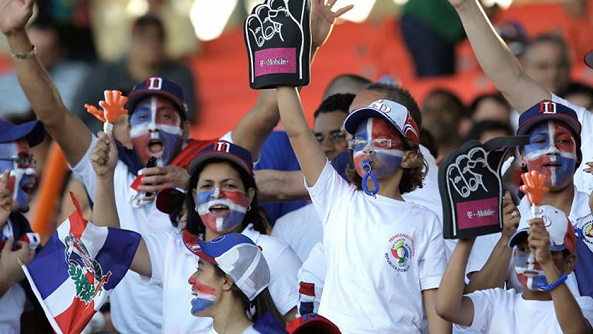
(The Dominican Republic is the "most nationalistic in the world" when it comes to sport)
For some countries, sporting performance on the global stage may act as a salve to other social issues which relate to their level of national economic and social development, or serve as a distraction to social inequalities which stem from the same causes. In such instances, “sport” has the potential to become a political issue. Overall the study summarises, “more democratic, prosperous, and globalised countries are the least sport nationalistic.”
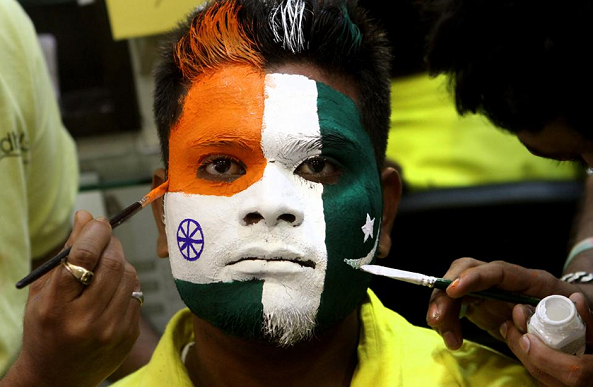
The study provokes consideration of what “sporting success” is in a healthy society. It infers that the less preoccupied we are with success on the sporting global stage, the happier we are as a society. This does not diminish the importance of sport as a force for social good within local communities, reinforcing the need for sport to be supported at all levels.
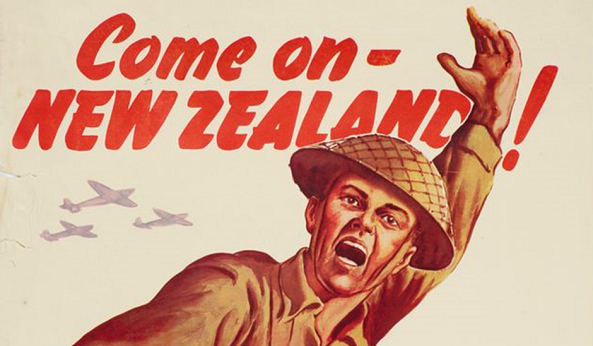
In referring to earlier research that sport can act “as a reminder and trigger of national memories and stereotypes commonly not originating from sports”, there is little doubt that the devastating effect of two World Wars in forging the identity of New Zealanders, helped foster the sporting concept of the “Kiwi Battler” in global sport.
“Ludere Causa Ludendi”, No More ...
After 152 years, Scotland’s last amateur football club competing in Scotland’s National League, “Queen’s Park”, has decided to become “professional”, contrary to their long-standing motto of “Ludere Causa Ludendi”, (“To Play for the Sake of Playing”).
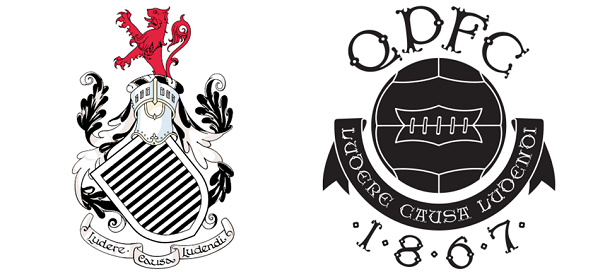
Queen’s Park won the first three “Scottish Cup” finals and amassed ten Scottish Cup final victories between 1873 and 1893. The club’s record would was only surpassed by Celtic in 1922/23 and Rangers in 1935/36. This means that, despite not having won the competition for 125 years, Queen’s Park remain in the third position for all-time Scottish Cup victories.
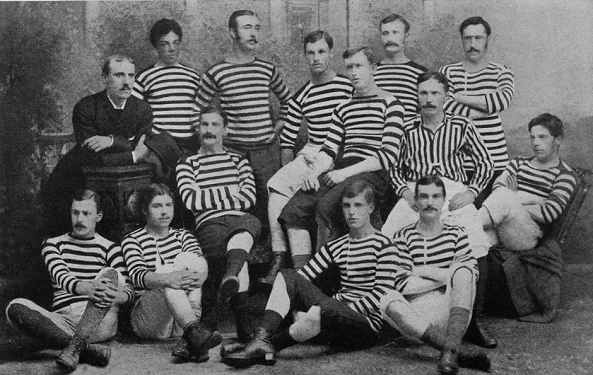
(The Queen’s Park team of 1880-81, winners of the “Scottish Cup” in April 1881)
At an Extraordinary General Meeting of the Club last week, 91.7% of Voting Members agreed to delete the word “amateur” from the club’s Articles of Association.
Perhaps unsurprisingly, “money” was at the heart of the decision, with two factors prominent:, the sale of the Club’s home ground to Scottish Football (eliminating a source of regular rental income); and the lack of a financial return from the club’s youth programme, specifically when players transferred to a professional club. As one Club Member stated, “in a perfect word we would have stayed amateur, however our world has changed.”
From The Archives ...
FESTIVAL OF SPORT
POVERTY BAY HERALD, VOLUME LXIII, ISSUE 19070, 18 JULY 1936
“The Festival of Sport competition for the election of the "most popular sport'' in Poverty Bay progresses well, with unabated interest among the various sections supporting the different candidates, and only narrow margins separating the first three in order of voting strength. Special efforts are in hand, on the part of the respective divisions of sporting enthusiasts, and interesting developments are anticipated for the near future. The positions of the respective candidates in the voting competitions at 5 p.m. yesterday, were: (1) Mr. H. H. De Costa, golf; (2) Mrs J. R. Murphy, basketball and croquet; (3) Mr. H. B. Williams, Rugby football; (4) Mr V. C R. Mitford, cricket and tennis; (5) Mr. R. J. Kerridge, athletic, soccer, and hockey; (6) Mr. N. Loisel, racing, hunting, polo; (7) Mr. Henare Ruru, Te Aitanga-a-Mahaki.”
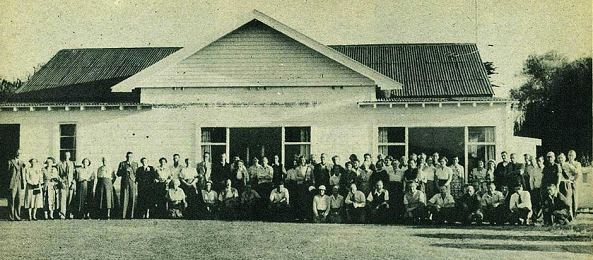
(The new Park Golf Club clubrooms in 1955, built by the voluntary labour of club members)
In 1936, Gisborne’s Oval Board of Control proposed the creation of a Festival of Sport to find the best all-round athlete of both sexes (across 21 different sports) and the most-popular sport representative in the region based on total sum of money that a sporting code’s candidate could raise for the purposes of the Festival’s goals.
The Festival was held on "King's Birthday" (the forty-second birthday of King Edward VIII and the first since his accession to the throne). Herbert Hyam (“Herb”) De Costa, Patron of the Park Golf Club (founded a year earlier, in 1935) won the competition for the most popular sportsperson, with the total sum of 232 pounds raised, distributed across the participating sporting codes for use in developing and maintaining their grounds. The best "all-rounders" were Peter Herbert Dow and Constance Emma Mead.
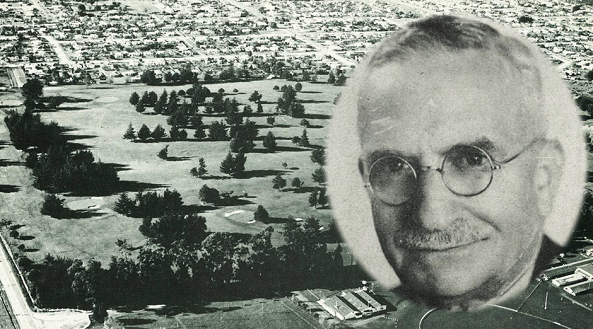
(Herbert Hyam (“Herb”) De Costa, Gisborne’s most popular sportsperson in 1936)
De Costa served on the Gisborne Borough Council for over 30 years, including several years as Deputy Mayor. A servant of the community, he served on the Cook Hospital Board the Poverty Bay Electric Power Board, and the Gisborne High School Board of Governors. He was a foundation member of the Citizens’ Defence Committee and for 21 years served as an executive member of the St. John Ambulance Association, of which he was Chairman for seven years.
The Final Word ...
"Play the game, for the game's sake."
(Henare Ruru, welcoming the British Rugby Team to Kaiti Pa, in 1930)